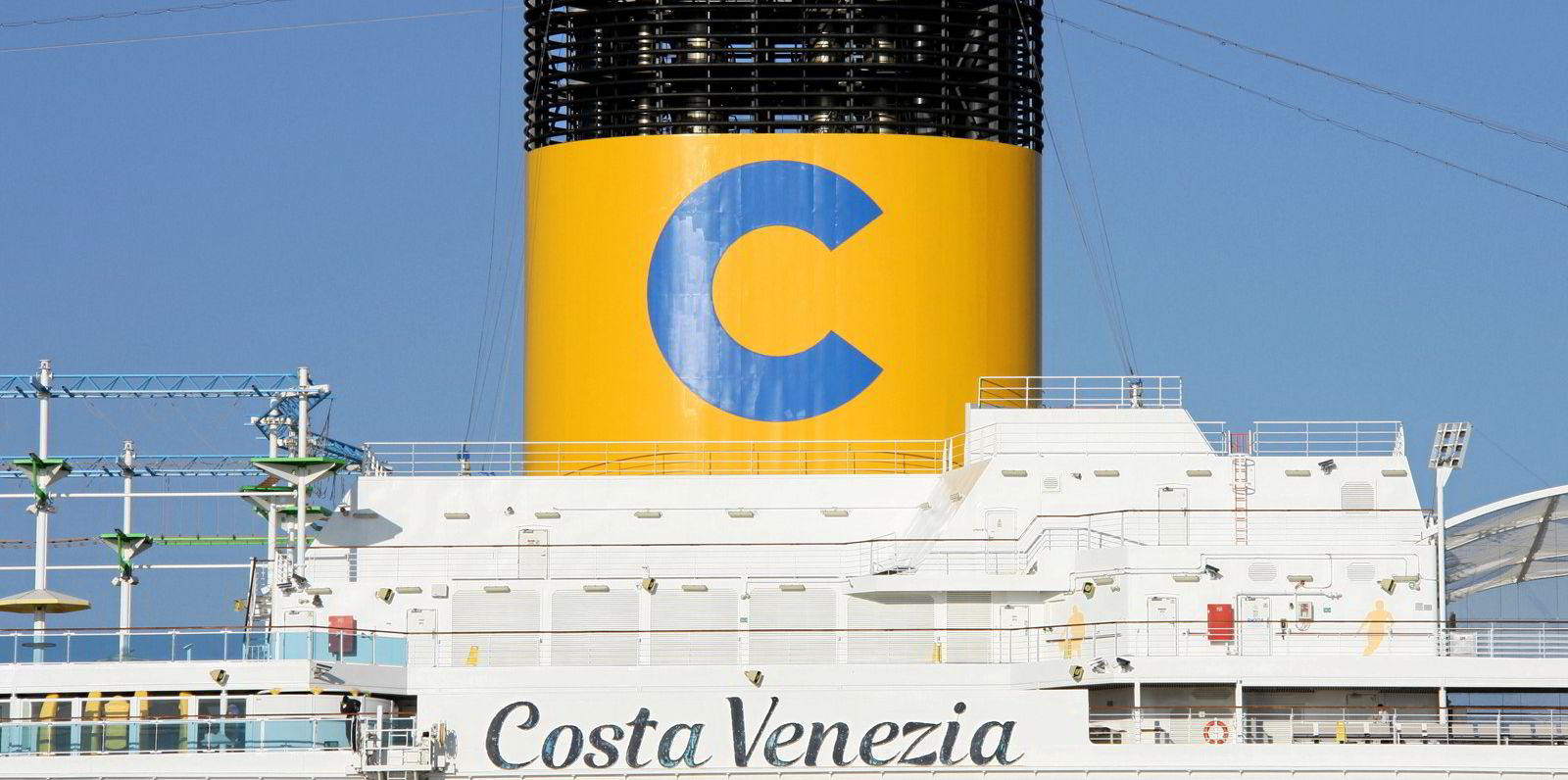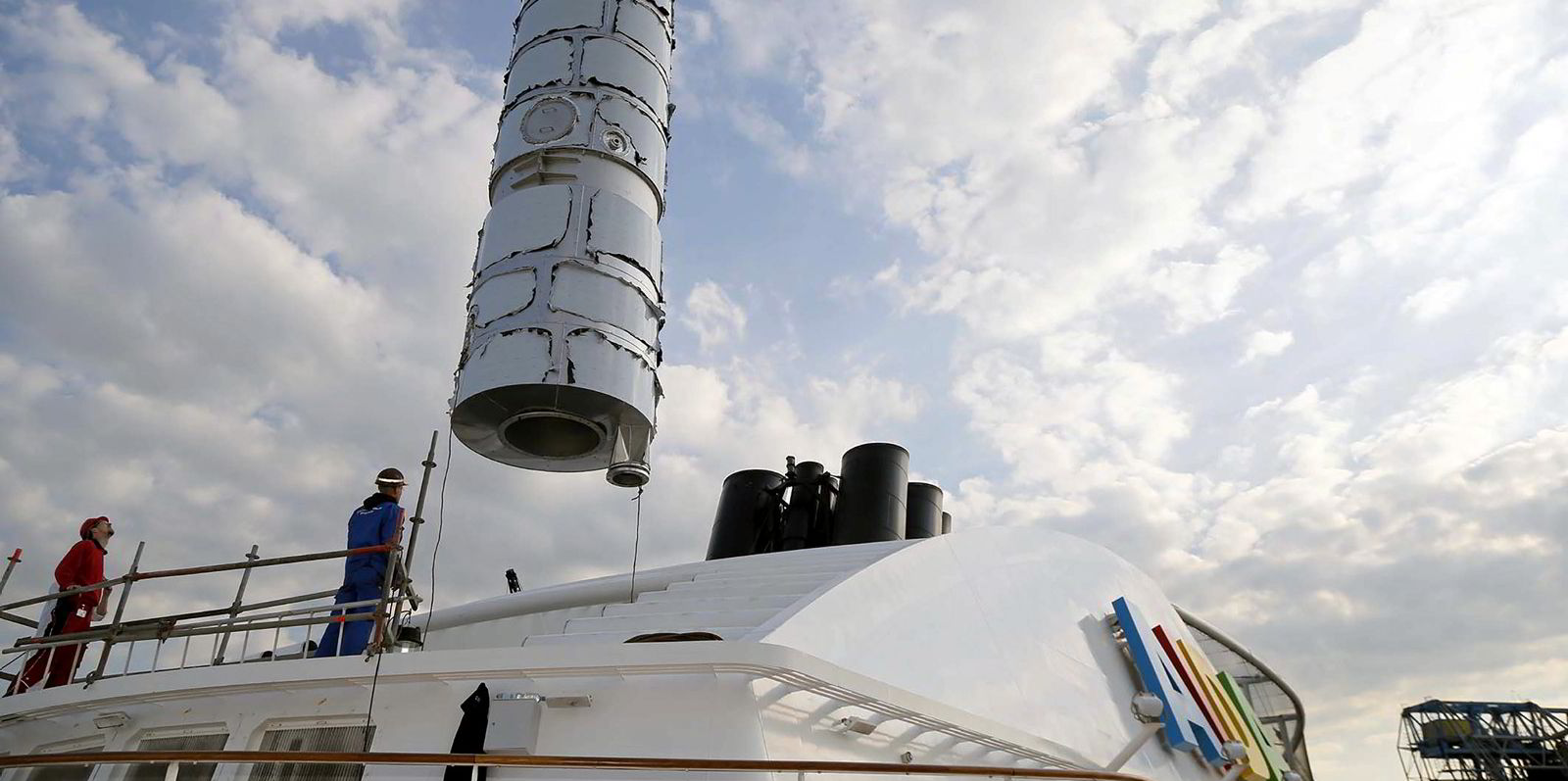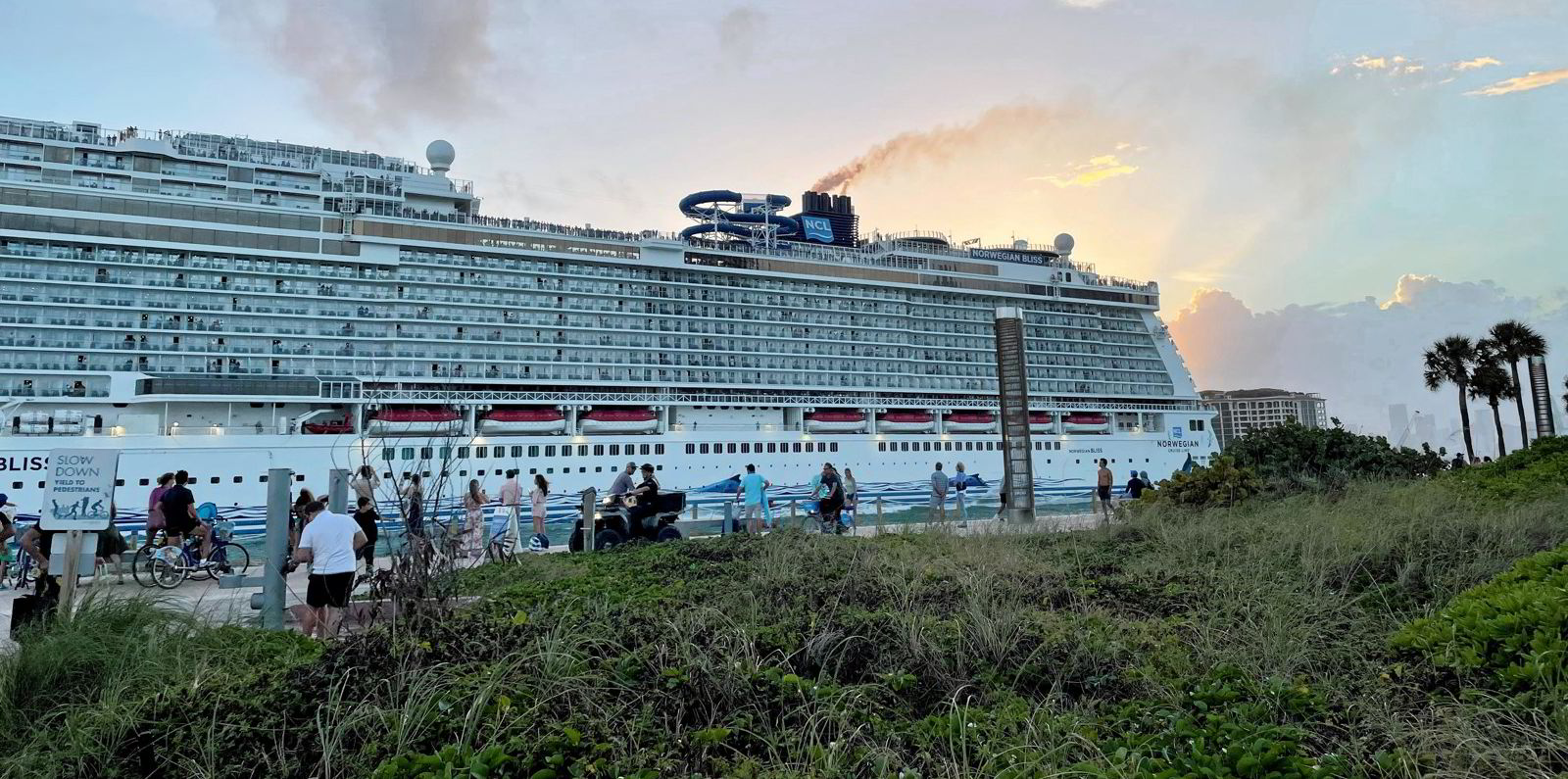Carnival Corp is heralding the progress it has made towards decarbonisation, despite receiving a low score from a German environmental group.
The Nature and Biodiversity Conservation Union (NABU) ranked the Miami company last in this year’s edition of its annual survey.
In response, the world’s largest cruise provider listed a number of fleetwide initiatives it has undertaken to lower its carbon emissions since 2019.
“We’re incredibly proud of the progress we’ve made so far,” spokeswoman Jody Venturoni told TradeWinds.
NABU gave Carnival a score of 18% out of a possible score of 100% on climate and environment, putting it last out of 11 cruise operators that responded to the NABU survey.
Carnival’s measures include lowering fuel consumption and carbon intensity by 15% per cabin by boosting ship efficiency and investing in eco-friendly technologies, she said.
The shipowner also partners with ports to build infrastructure that will allow cruise ships to run on shore power while in port.
So far, 60% of Carnival’s fleet of 92 ships can connect to shore power in ports with electric power connections.
“Our success — and quite literally, our livelihood — depends on doing our part to protect this incredible planet we call home,” she said.
“Without the beautiful communities, vibrant marine ecosystems, and scenic spaces we operate in, we couldn’t deliver unforgettable happiness by providing extraordinary cruise vacations to millions of guests.”
Carnival also claimed to be the only major cruise company producing fewer greenhouse gas emissions today than in 2011, though it expects to boost capacity by 30% this year.
The Miami-based owner said it also aims to reduce 2008 carbon emissions by 40% by 2030 and to be carbon-neutral by 2050. Almost 10% of the fleet uses scrubbers to remove carbon emissions from ship funnels.

“All these actions have and will continue to drive down our carbon footprint, fuel consumption and costs,” Venturoni said.
She said the company will also have 11 LNG-fuelled ships by 2025 that will emit 12% less greenhouse gas emissions compared to fuel oil-powered ships, nearly eliminate sulphur compounds and reduce NOx emissions by 85%.
“We also understand there’s an opportunity to do even more because addressing climate change requires energy sources and technologies that don’t yet exist for any industry, and the maritime sector is no exception,” she said.

To that end, Carnival is trialling alternative energy solutions such as lithium-ion batteries, fuel cells and carbon capture, and it is looking into using bio and synthetic hydrogen-derived e-fuels.
“We’re committed to pioneering key sustainability initiatives in cruise and have joined forces to share information, research and best practices with companies, universities, research bodies, nongovernmental organisations, and others,” she said.
“We look forward to continuing to lead the way in sustainable cruising and invite everyone to learn more about our work in this area in our latest sustainability report.”





